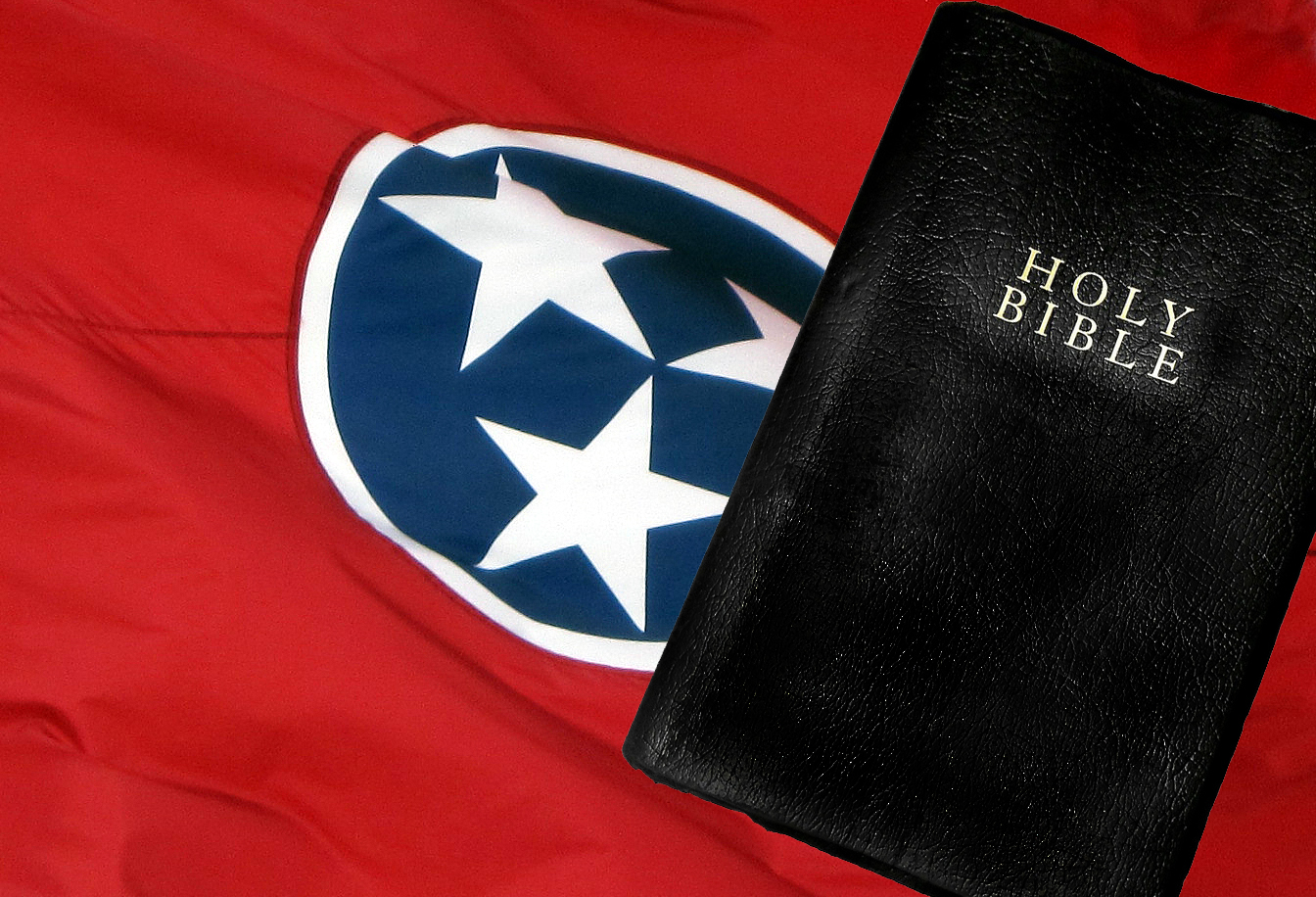
NASHVILLE (BP) — The State of Tennessee has 20 categories of state symbols, including official insects, birds, fossils, horses, rocks, songs, and even tartan. Two Tennessee lawmakers would like to add books as a category, and make the Bible Tennessee’s official book.
 Representative Jerry Sexton, of Bean Station, and Senator Steve Southerland, of Morristown — both Republicans — last month introduced House Bill 0615 and Senate Bill 1108 respectively. As stated, the bill, “Designates the Holy Bible as the official state book.” The bill is scheduled to appear before sub-committees in both the House and the Senate near the end of March, and if approved by the full committee, would move to the full House and Senate for vote before the current legislative session concludes near the end of April.
Representative Jerry Sexton, of Bean Station, and Senator Steve Southerland, of Morristown — both Republicans — last month introduced House Bill 0615 and Senate Bill 1108 respectively. As stated, the bill, “Designates the Holy Bible as the official state book.” The bill is scheduled to appear before sub-committees in both the House and the Senate near the end of March, and if approved by the full committee, would move to the full House and Senate for vote before the current legislative session concludes near the end of April.
The bill is not without its detractors, with many saying it violates Article I, Sections 3 and 4 of the Tennessee Constitution and the First Amendment of the U.S. Constitution. Sexton disagrees, and believes making the Bible the official book of Tennessee simply acknowledges the role the Bible has played in Tennessee’s past as well as its present.
“There is no denying our history,” said Sexton, a freshman representative about six weeks into his first term. “The Bible has certainly had a pivotal role in the history of our state as well as our nation. The Bible also plays a significantly important role in our state today with several companies in Nashville being responsible for publishing more Bibles than possibly any other city in the world. Making the Bible our official state book isn’t a violation of either our Constitution or the U.S. Constitution. It is simply a recognition of its historical importance. To preclude the Bible simply because it is religious in nature is anathema to the First Amendment.”
One of those strongly opposed to the bill is David Plazas, opinion engagement editor of Nashville’s The Tennessean. Plazas wrote in a Feb. 15 editorial that the lawmakers “have filed unconstitutional, divisive, and misguided bills that would make the Holy Bible the official state book.”
Plazas also wrote that, “Both Tennessee and United States constitutions expressly respect the rights of individuals to worship freely, but also prohibit the state from favoring one religion over another.” In his column he quotes Article I, Sections 3 and 4 of the Tennessee Constitution.
Section 3 states: “That all men have a natural and indefeasible right to worship Almighty God according to the dictates of their own conscience; that no man can of right be compelled to attend, erect, or support any place of worship, or to maintain any minister against his consent; that no human authority can, in any case whatever, control or interfere with the rights of conscience; and that no preference shall ever be given, by law, to any religious establishment or mode of worship.”
Section 4 states, “That no political or religious test, other than an oath to support the Constitution of the United States and of this state, shall ever be required as a qualification to any office or public trust under this state.”
The First Amendment of the U.S. Constitution states, “Congress shall make no law respecting an establishment of religion, or prohibiting the free exercise thereof; or abridging the freedom of speech, or of the press; or the right of the people peaceably to assemble, and to petition the government for a redress of grievances.”
Southerland, a 13-year Senate veteran who has been Deputy Speaker of the Senate for four years, volunteered to sponsor the bill on his side of the legislature. He argues the bill “in no way” violates either document.
“This action doesn’t impose a religion on anyone,” he said. “People don’t have to read it and they don’t have to believe it. The bill doesn’t even prescribe a particular version of the Bible. It is the most read and most sold book in history and its role in [Tennessee] history is undeniable.”
Sexton is even more direct in refuting the argument that the bill favors one religion over another because it doesn’t favor a religion at all, and therefore it doesn’t violate anyone’s rights.
“If you were to go line by line through our state constitution and the U.S. Constitution,” he said, “you’d be able to see that in making the Bible our official state book, it in no way violates either document. It doesn’t violate anyone’s conscience to believe in — or not to believe in — God the way they choose, it doesn’t compel anyone to attend or support any place of worship, it doesn’t establish any religion or provide any preference to religion, and it isn’t being set forth as a requirement for qualification for any state office.”
A similar bill was introduced in Mississippi in January and last year in Louisiana. The Louisiana bill was eventually pulled by its sponsor before it made it to the house floor for vote, saying it had become too much of a distraction. However, Keith Werhan, a constitutional law expert at Tulane University, is reported in the Times-Picayune as saying that designating the Bible as Louisiana’s official state book would have been largely a symbolic gesture.
“You can promote religion so long as it doesn’t rise to the level of establishing a church,” Werhan said.
And Sexton said the Bible would fall into that “symbolic” category if the Bible becomes the official book of Tennessee.
“Making a book the official state book doesn’t require that people read it any more than making “The Tennessee Waltz” the state song would require people to sing it.
“It is about recognizing the Bible’s historical role in Tennessee, and that history is undeniable,” Sexton said.















